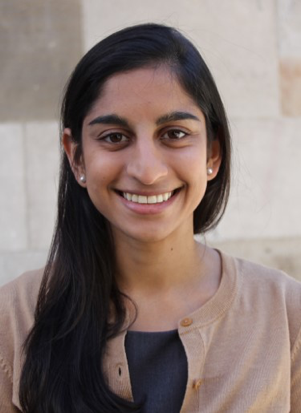Nina Kogekar, fourth-year medical student Icahn School of Medicine at Mount Sinai and soon-to-be internal medicine resident at Mount Sinai Hospital, joins us to discuss Step 1, clerkships and more.
Tell us about yourself.
Nina Kogekar: I’m originally from Connecticut and went to Swarthmore College for undergrad. I was a biology major and did a lot of singing in college. I went to medical school right after graduating. I’ve really enjoyed my experience as a student at Mount Sinai and am so happy I get to stay on as an internal medicine resident here.
Looking back on your medical school experience, what would you say to the young and naïve “first-year you”?
NK: During first year, I considered specialties from the perspective of what diseases or organ systems on which the specialty focused and whether or not I found that interesting. However, if I could go back, I would also encourage myself to consider what the typical day-to-day activities are like for a given specialty. I would also say that first year is a great time to keep an open mind and explore a broad variety of specialties and activities.
What tips do you have for USMLE?
NK: As a second year it can be frustrating when all of the advice is advice is to “do what works for you,” but it is true that everyone has a different approach. Do not be afraid to change your study methods if what you’re trying isn’t working for you! Doing lots of practice questions, like on UWorld, is very helpful. When doing practice questions, it is especially important to study and learn from the ones you get incorrect. Also, make sure to build in time for breaks and fun with friends during study time!
What advice do you have for the students going through clinical rotations?
NK: Don’t be afraid to speak up, even if it can feel intimidating at first. Try to find out what expectations are for medical students, as it may differ from rotation to rotation, and ask for feedback early. Take the time to talk to your patients and get to know them well. Help out and support your peers.
What recommendations do you have for medical students to maintain their sanity?
NK: Try to keep up with your non-medical hobbies as much as possible. Make the time to hang out with friends and family, even if it means sacrificing a little study time. Spending time with non-medical school friends can help put things into better perspective.
How did medical school differ from your expectations?
NK: I was surprised at how different the pre-clinical and clinical aspects of medical school felt. Though they complemented each other well, it almost seems like they are two different programs. My time in medical school also passed much more quickly than I expected.
What things did you do during your four years of medical school that you believe particularly impressed your residency program?
NK: I was involved in a few different activities that aimed to provide care to underserved patients, including our student-run free clinic. On interviews, programs were interested in learning more about these experiences. I also got a lot of questions about my research project. I wrote about singing on my application, and also got questions about that from interviewers; it was nice to have the opportunity talk about interests outside of medicine.
What attracted you to your chosen specialty?
NK: I was already considering internal medicine when I entered medical school, and all my experiences confirmed that it was the specialty for me. I love the breadth of the field, in terms of the diseases, patients encountered and the variety of career paths available after residency. I enjoy having the opportunity to think through complex clinical problems and apply what I’ve learned about pathophysiology in practice. I also liked the types of interactions and relationships I’ve been able to have with patients on rotations in internal medicine.
What is your biggest fear about beginning residency?
NK: The transition from being a student to being a provider with real responsibility for patients, and starting to make decisions on my own.
What advice would you give third-year students about to start the Match process?
NK: Get advice from multiple advisors in your specialty with respect to your fourth-year schedule and programs to which you should apply. Prepare a CV to send to letter writers and give them plenty of time to write your letter. Complete a draft of your personal statement early on, so that others can look it over and you have time to make revisions. Practice answering some of the common questions that come up in interviews in order to prepare yourself for the real thing.
And a fun bonus question! Please share an easy and quick recipe that got you through tough weeks in medical school:
NK: I love making this quick and easy apple crisp! Cut 3 to 5 apples into ¼-inch slices, toss with 2-3 tbsp sugar, 1 tsp cinnamon, and 1/8 tsp salt. Put apples in baking dish coated with butter. For the topping, mix ½ cup uncooked rolled oats with 4 tbsp unsalted butter, ½ cup brown sugar, 1/3 cup flour, and 1/8 tsp salt until blended into small clumps; sprinkle evenly over the apples. Bake at 350°F for ~50min or until apples are tender and topping is crispy and serve with ice cream.




